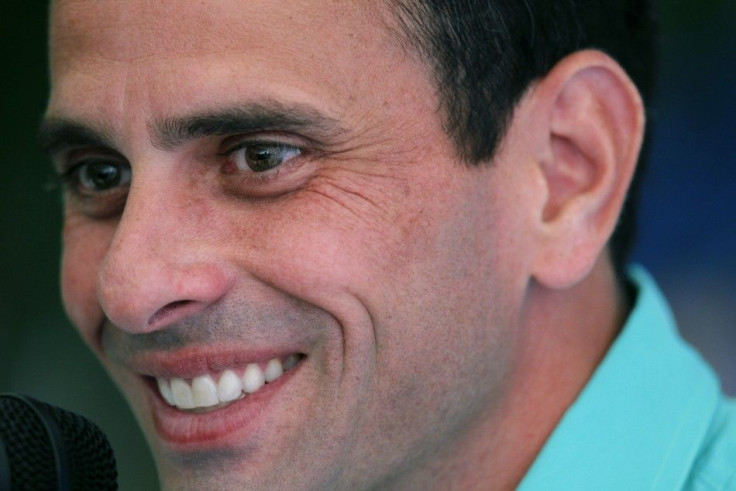Accusations In Chavez-Friendly Media Raise Specter Of Anti-Semitism In Venezuela's Elections

Charges of anti-Semitism have been leveled against Venezuelan President Hugo Chavez in his re-election campaign over state media content that brands opposition candidate Henrique Capriles Radonski as a Zionist.
In particular, an opinion article that appeared in February on the website of state-run Venezuelan National Radio titled, Zionism is the Enemy, has been cited as evidence of a state-driven effort to defame Capriles through anti-Semitic propaganda.
To understand the interests that the candidate of the Venezuelan and transnational oligarchy Capriles Radonski stands for, it is important to know what Zionism, the Israeli ideology that he deceitfully represents, is, VNR host Adal Hernandez wrote.
Zionism hides behind a religious and nationalist speech that attempts to make invisible its colonialist nature and purely political pretensions of deeply hegemonic and racial superiority.
The article has since been removed from the VNR website, but continues to circulate on various state-affiliated and non-government websites.
The Anti-Defamation League, a U.S.-based international NGO that advocates for the civil rights of Jewish people worldwide, denounced the article as blatantly anti-Semitic in a report, saying that it sought to discredit Capriles by casting him as a 'traitorous Jew' who is unworthy of the presidency and who, if elected, will subvert the interests of the Venezuelan people for the benefit of some mythic worldwide Zionist plot.
The ADL accuses Chavez, known for expressing strong views against Israeli policies and garnering political ties with Iran, whose President Mahmoud Ahmadinejad overtly rejects the legitimacy of the Israeli state, of veiling anti-Semitic attitudes behind political criticism of Israel.
He engages in the demonization of Jews for political purposes, said ADL Associate National Director Michael Salberg. It becomes a vehicle to explain all of the things that are wrong in life. Unfortunately, in an uneducated, poor population, it can be persuasive.
Rachel Boothroyd, a contributor to independent Venezuelan news analysis website venezuelanlaysis.com, challenges the claims of anti-Semitism from the Chavez camp.
[W]hat is being debated is the political role of Israel, and not the Jewish religion, Boothroyd wrote. Judaism and Zionism are quite simply not the same thing. Where the former is a 3,000-year-old religion, the latter (generally speaking) has come to be associated with a historically and geographically specific political movement that explicitly defends the interests of the Israeli state.
Boothroyd adds that rather than this being a religious issue, it is a human rights issue taking place firmly within a specific political and economic context, and what has been posited as an anti-Semitic attack against the man Capriles was in fact an attack on the interests of the kleptocratic class to which Capriles belongs.
Capriles, who is the grandson of Polish Jewish immigrants and Holocaust survivors, but is himself a Catholic, has not commented on the allegedly anti-Semitic propaganda directed at him through the Chavez political apparatus.
Less than 1 percent of Venezuela's population identifies as Jewish, 12,000 in 2010, according to the American-Israeli Cooperative Enterprise. An overwhelming 96 percent identify as Roman Catholic, according to the CIA World Fact Book.
The reality is that there is not much sympathy for arguments against anti-Semitism in a country where the Jewish population is fractional.
This, no doubt, contributes to an environment where the implications of anti-Semitism are poorly understood. But the political rhetoric of anti-Zionism presents the tangible danger of inciting anti-Semitic sentiment, whether or not that is Chavez's intent.
© Copyright IBTimes 2025. All rights reserved.




















